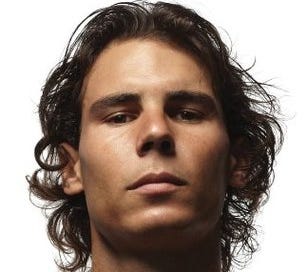Rafael Nadal’s mental prowess, strength, and toughness is world-class.
I think everyone can learn from these priceless excerpts from his translated autobiography, “Rafa.” I’ll be sharing a new insight from Rafa everyday this week. Both because I want to have them for personal reference later, and I want to share with you all.
Volleyball and tennis share a huge amount of similarities in terms of the pace of play and the mental demands placed on top players, and so there is extra value for any athletes out there:
“No ball arrives the same as another; no shot is identical.”
“You might think that after the millions and millions of balls I’ve hit, I’d have the basic shots of tennis sown up, that reliably hitting a true, smooth, clean shot every time would be a piece of cake.
But it isn’t. Not just because every day you wake up feeling differently, but because every shot is different; every single one.
From the moment the ball is in motion, it comes at you at an infinitesimal number of angles and speeds; with more topspin, or backspin, or flatter, or higher. The differences might be minute, microscopic, but so are the variations your body makes–shoulders, elbow, wrists, hips, ankles, knees–in every shot.
And there are so many other factors–the weather, the surface, the rival. No ball arrives the same as another; no shot is identical.
So every time you line up to hit a shot, you have to make a split-second judgment as to the trajectory and speed of the ball and then make a split-second decision as to how, how hard, and where you must try to hit the shot back.
And you have to do that over and over, often fifty times in a game, fifteen times in twenty seconds, in continual bursts more than two, three, four hours, and all the time you’re running hard and your nerves are taut; it’s when your coordination is right and the tempo is smooth that the good sensations come, that you are better able to manage the biological and mental feat of striking the ball cleanly in the middle of the racket and aiming it true, at speed and under immense mental pressure, time after time.
And of one thing I have no doubt: the more you train, the better your feeling.
Tennis is, more than most sports, a sport of the mind; it is the player who has those good sensations on the most days, who manages to isolate himself best from his fears and from the ups and downs in morale a match inevitably brings, who ends up being world number one.”





